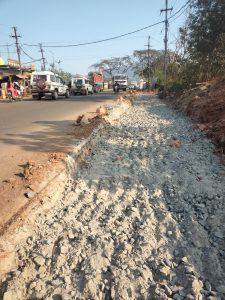The mango taught me about intergenerational trauma.
My perspective on past interactions with males changed drastically.

As a teenager, I felt suffocated by my mother's strict rules. She forbade me from having a boyfriend, rarely allowed me to go out alone, and never let me have sleepovers. I longed for independence and the freedom to make my own choices.
I finally managed to convince her to let me stay at a friend's house when I was 14, but in the middle of the night, she had to come and pick me up. I pretended to be homesick, but the truth was, I was afraid. I had always harbored a deep fear of men, even though I couldn't pinpoint why.
It wasn't until I was 18, in 2012, that my mum took me out to dinner and revealed the reason behind my fear. She told me that when she was just 11 years old, a man had taken her from her bed and raped her. This man was her stepfather, whom her mother was still married to.
I had heard whispers about this man's violent and abusive behavior towards my mum and grandmother, as well as his sexual abuse of other children in the family. But I had never known the full extent of it until that moment. As I listened to my mum's painful story, tears streamed down my face. It was a lot to take in, but at the same time, it brought a strange sense of understanding. It confirmed what I had subconsciously known all along - that I needed to be wary of men.
My parents had moved to the UK from Sri Lanka in 1994, just a few months before I was born. They were in their mid-twenties, and my mum was desperate to leave her stepfather behind and start a new life. She had begged her mother to come with them, but her mother chose her husband over her own daughter, time and time again.
Even after all these years, my mum still tried to maintain a relationship with her mother. She even forced me and my younger sister to talk to her on the phone during holidays and birthdays. But I always felt like a stranger to my grandma.
In 2018, while studying for my Fine Art degree, I made a short film that depicted a conversation between my mum and aunt. It was the first time they had talked about how they had met in their early twenties. My aunt had been abandoned by my grandmother when she was just two years old.
The making of this film allowed my mum and her sister to finally discuss their traumatic childhood rather than pushing it aside. It was a success, and it inspired me to go to Sri Lanka the following year with a friend and a camera. My intention was to bring the generations together and hopefully reunite my mum and her mother.
However, things didn't go as smoothly as I had hoped. I naively believed that a few conversations with my grandmother would make her understand the harm she was causing my mum by staying with her abusive husband. I thought she would apologize, and we would all be happy. But she stood by her decisions, and I couldn't get through to her.
During the five years I spent filming and traveling between the UK and Sri Lanka, I realized that I couldn't judge my grandmother in such a black and white manner. It wasn't as simple as that.
Growing up as a teenager, I often felt confined and restricted by my mother's rules. She had a strict policy against having boyfriends, limited my outings, and forbade me from going to sleepovers. However, at 14 years old, I finally managed to convince her to let me spend the night at a friend's house. But my excitement was short-lived as I ended up being picked up in the middle of the night. I pretended to be homesick, but the truth was that I was afraid of being alone with my friend's father. This fear of men had been festering inside me for as long as I could remember, despite having a seemingly uneventful childhood. My parents' divorce when I was 11 was the only significant event that I could think of, but it didn't seem to fully explain my fear.
It wasn't until I turned 18 that my mother finally revealed the truth to me. During a dinner at a restaurant, she shared with me the horrifying night when she was 11 years old and was taken from her bed and raped by a man. She believed that man to be her stepfather, who was still married to her mother. Although I had heard whispers about this man's violent tendencies and sexual abuse from family members, I had never known the full extent of his actions until my mother's confession. Tears streamed down my face as I listened to her painful story, but it also brought a strange sense of understanding. It confirmed my subconscious belief that I needed to be cautious around men.
In 1994, just before I was born, my parents moved to the UK from Sri Lanka. My mother, in her mid-twenties, was desperate to leave her stepfather and start a new life. She tried to convince her mother to come with her, but her mother chose her husband over her own daughter, time and time again. Despite this, my mother made an effort to maintain a relationship with her mother, even forcing my sister and me to talk to her on holidays. But I always felt like a stranger to my grandmother.
In 2018, while studying for my Fine Arts degree, I made a short film that depicted a real conversation between my mother and aunt about how they first met in their early twenties. My aunt had been abandoned by my grandmother when she was just two years old. By sharing this film with my family, my mother and her sister were able to have an open and honest discussion about their troubled childhood for the first time.
Inspired by the success of the film, I decided to visit Sri Lanka the following year with a friend and a camera. My intention was to reunite the generations and hopefully help my grandmother understand the pain she had caused my mother. Despite only meeting my grandmother a few times in my life, I was excited to spend quality time with her and hear about her life. However, my naivety soon became apparent as I realized that it wasn't as easy as I thought. My grandmother refused to acknowledge her mistakes and I couldn't seem to get through to her.
But over the five years that I spent filming and traveling between the UK and Sri Lanka, I came to understand that my grandmother couldn't be judged in such a black and white manner. Our relationships with our parents are complex and cannot be simplified into right or wrong. By making the film, my mother and her sister were able to finally address their childhood trauma and begin to heal. And although my grandmother may never fully understand the impact of her actions, I have come to accept that she is still a part of my family and I can still love her.










